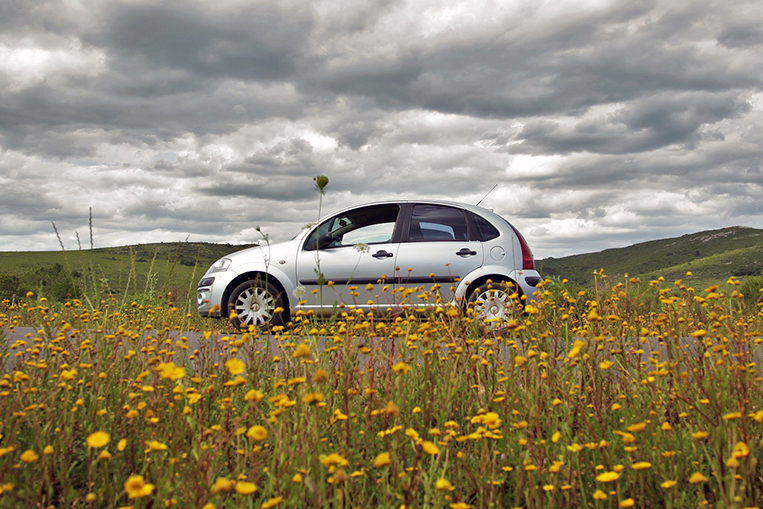
Scientists are not good at breaking bad news. Very recently, the United Nations’ Intergovernmental Panel on Climate Change—the world’s leading commission of climate scientists—released a report saying that we only have a little over a decade to slow global warming to only 1.5°C above pre-industrial levels, the target set in the Paris Agreement on Climate Change.
If it’s not immediately clear, let us spell it out: THIS IS BAD. Ladies and gentlemen, this is the part in the movie when the scientists tell you there’s a meteor hurtling toward Earth. However, just like in most movies, the warnings of egghead scientists are often misunderstood and brushed off by people in power, who say that caring about the planet is for the privileged—and that they have other priorities.
The trouble with climate change is that it’s so difficult to translate urgency from the global scale to the human scale. Global measures of climate change are measured in fractions of Celsius degrees, which could mean completely different things to people. In the Philippines, do people really notice when the temperature goes from 33°C to 34°C in the summer? It’s all lumped together as mainit to us. But rather than being unimportant, missing the 1.5°C warming target is especially serious and concerning for island nations like us. Already, there is overwhelming scientific evidence that man-made climate change has brought on more frequent and more intense storms, which bring devastation and loss of life to vulnerable countries like the Philippines.
Some say we should settle for the less ambitious 2°C warming target and call it a day—what’s half a degree anyway? The following infographic from Carbon Brief should show everyone just how urgent the problem is:
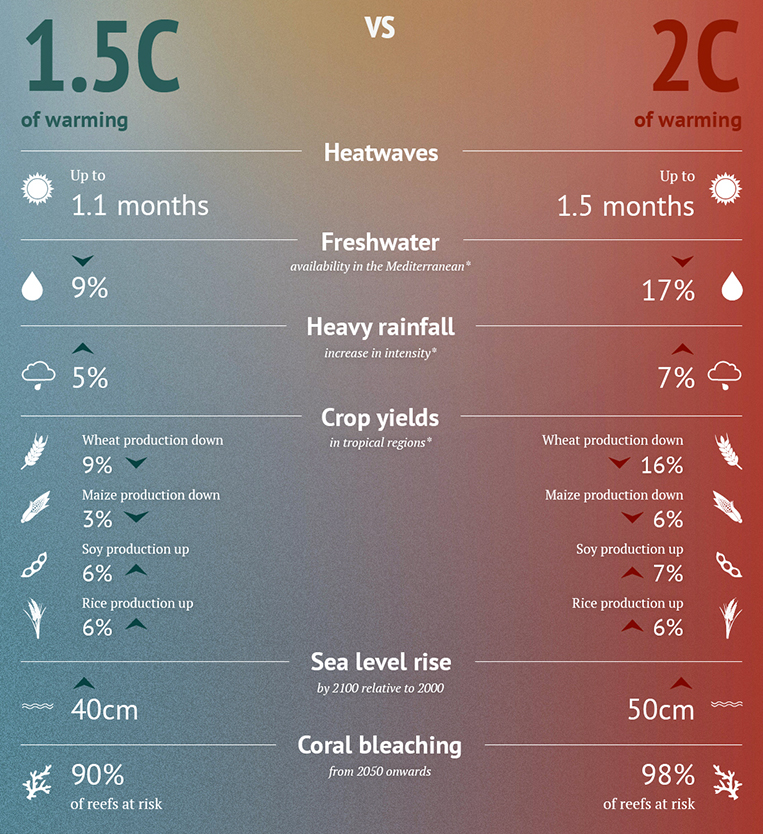
Half a degree of more warming all over the world means longer droughts, heavier storms, compromised water supplies and agriculture, and deaths—not just of human beings but also of all the species that will be wiped out by environmental change. Think about these figures next time someone says half a degree doesn’t matter.
The UN report shows a window of hope for us, but we have to seize our chance now, and it’s going to take a lot. To meet the 1.5°C target, the world needs to halve its carbon emissions by 2030 and go completely carbon-neutral by 2050. One big area to get involved in is transport. Transportation accounts for 24% of carbon-dioxide emissions globally, with road transport accounting for more than three-quarters of those emissions. Transport systems like ours, which are dominated by an abundance of fossil-fuel engines burning gas in traffic, are the main culprit behind global warming.
To meet the 1.5°C target, the world needs to halve its carbon emissions by 2030 and go completely carbon-neutral by 2050
If you’re used to commuting by car, perhaps you could consider such alternatives as public transportation, biking or new mobility devices like e-bikes and e-scooters. If you really insist on driving a car (despite fully understanding the consequences of using a car for your city), then perhaps you could consider the new electric vehicle offerings of many established automakers. However, while our individual choices have impacts and we must make them well, it’s going to take a lot more than that to meet the UN’s targets. If you feel trapped inside your car and wishing you had viable alternatives, maybe it’s time to stand up and demand real transport solutions from our leaders.
Good transport policy needs to be a political issue, now more than ever, not just for our cities but for the world. We’ve already written about the fact that building more roads makes traffic worse, not better. Even though this idea is uncontroversial among transport planners and scientists, many politicians still insist on pouring concrete and building our way out of congestion. Not only will this take us in the wrong direction as far as improving mobility is concerned, it will also accelerate global warming by keeping our transport system reliant on fossil fuels and energy-intensive propulsion. When the life of the planet is at stake, we don’t really want to be the people who made things worse, not better. When the time comes to choose our leaders, see how they answer this question: Do they appreciate how much we need a more sustainable transport system, now more than ever?
Time is running out for everyone. But this movie doesn’t have to end with us in a spaceship, looking down on what’s left of Earth after we destroy it. We can still be the heroes in this story. But we have to act now.


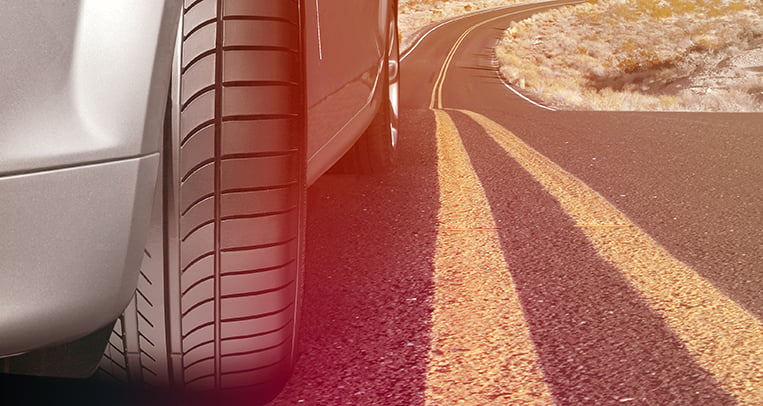

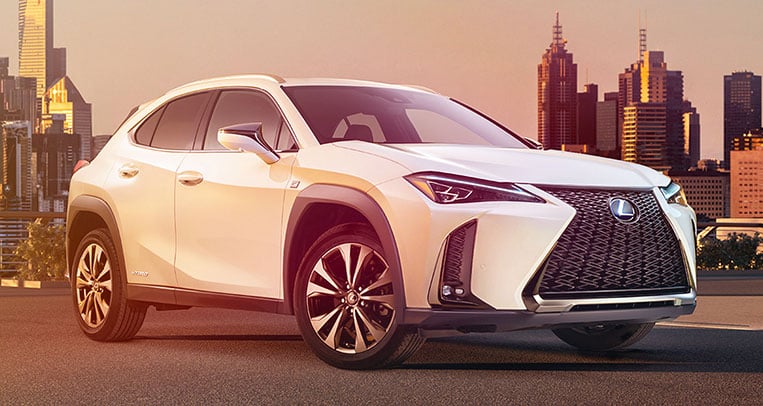

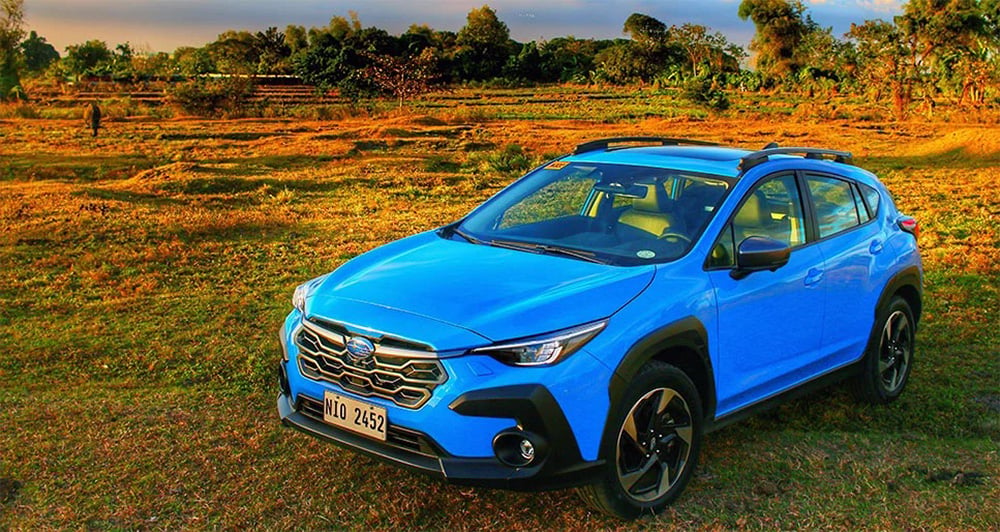

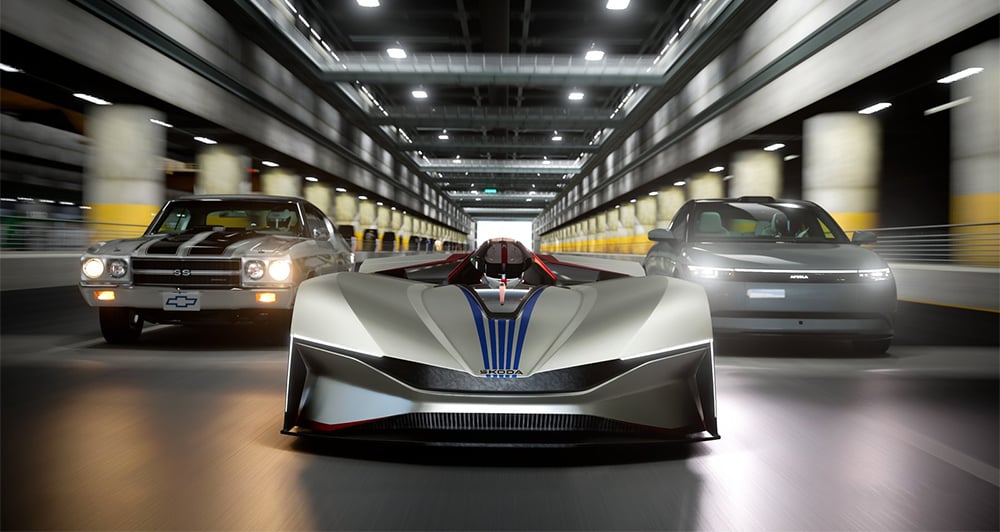

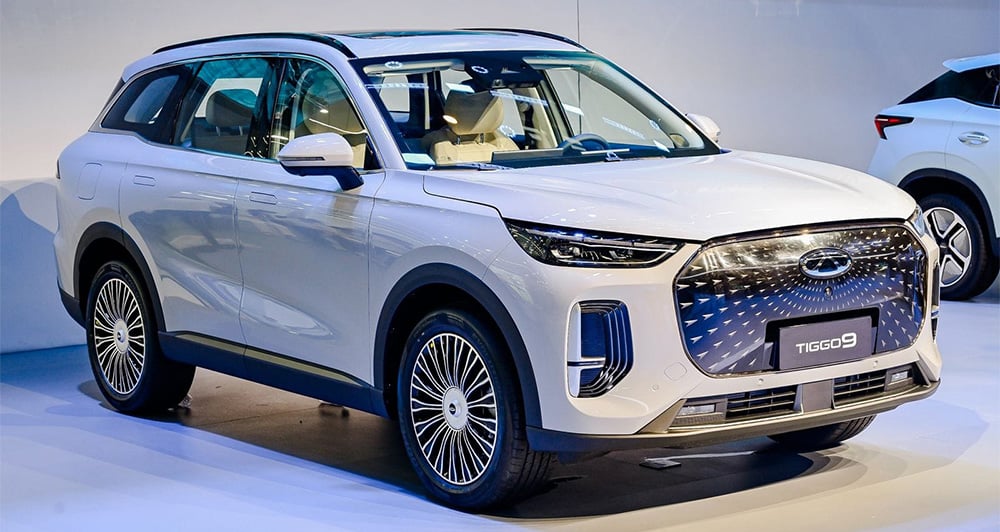
Comments